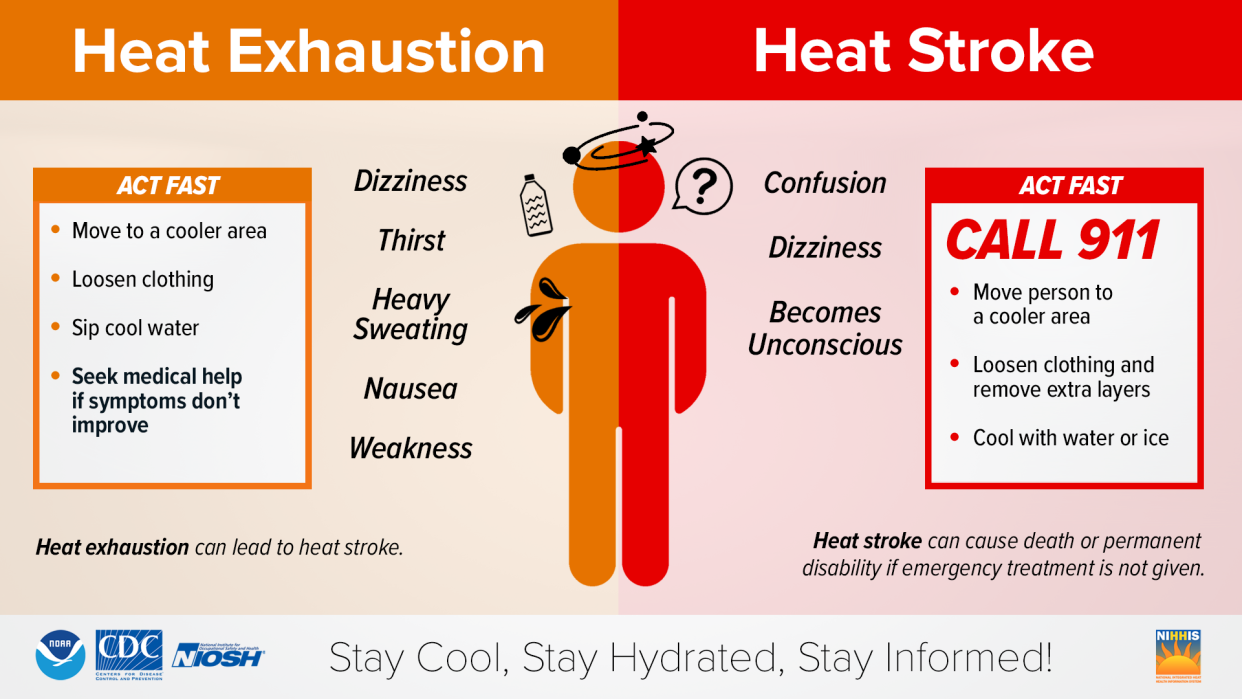St. David’s Round Rock shares safety tips during record-breaking heat

Summer officially began on June 20, which is the earliest start of summer in 128 years, according to the Farmers’ Almanac. As Central Texans prepare for record-breaking temperatures this summer, swimming, water sports and trips to the beach will likely be popular ways to beat the scorching heat. While these activities make for a fun and eventful break, it’s important to take the proper precautions to avoid a trip to the emergency room.
Medical staff at the Level II Trauma Center at St. David’s Round Rock Medical Center suggest thoughtful planning to ensure a safe summer.
Stay safe in the water
According to the American Red Cross, 10 people die each day from unintentional drowning, including many children.
Drowning can happen swiftly, silently and when you least expect it. Children in and around water must be closely supervised by an adult or guardian who avoids distractions from a phone, book or conversation. Try to keep children within arm’s reach at all times, and dress children in bright or neon-colored swimsuits for easy identification in crowds and in the water.
No matter your level of experience, never jump or dive into water without first checking the depth of the pool or lake. With lake levels being extraordinarily low, diving head-first into shallow water could result in a head, neck or spine injury, causing potential life-long injuries.
Practice caution during water sports
Before an excursion on the lake, ensure that the person operating the watercraft is fully versed in the nautical rules of navigation and not under the influence of alcohol or drugs. Additionally, incidents like propeller strikes cause catastrophic injuries every year, so be sure the engine is turned off before allowing anyone to enter or exit the watercraft.
Before heading into the water, be sure you have the proper type of life jackets based on the activity for each person on board. For example, a different type of life jacket is required for choppy lake water than for calm pool water. Everyone on the watercraft, regardless of age, should wear a U.S. Coast Guard-approved life jacket. Children younger than 13 are required by Texas law to always wear a life jacket. It is critical that the proper size is chosen, which is based on weight for children and measured by chest size for adults.
Carbon monoxide also can be deadly to passengers if they remain at the rear of a boat while the engine is running and the boat is not moving. Signs of carbon monoxide poisoning include headaches, upset stomach, vomiting and confusion. If someone exhibits these signs, move them to the front of the boat and turn off the engine. Prepare to conduct CPR if necessary and call 911.
Protect against the sun
This summer, plan outdoor events during early mornings and evenings to avoid being outdoors during the hottest time of day, which is usually between 10 a.m. and 7 p.m. While outside, seek shade as often as possible, and wear lightweight and loose-fitting clothing to avoid overheating.
It’s easy to become dehydrated from sweat, and it is vital to drink plenty of water or electrolyte fluids. Wear sunscreen with an SPF of 30 or higher to protect you and your family from painful sunburns, which can contribute to dehydration and make it harder for the body to cool down quickly. Don’t forget to reapply sunscreen every two hours or after long periods of water exposure.
Signs of heat exhaustion include weakness, nausea, dizziness and heavy sweating. If you or someone else is experiencing these symptoms, drink plenty of water and find a location to cool off indoors. If symptoms are not resolved, seek emergency assistance immediately.
Prevent vehicular heat stroke
Always remember to check for a child or pet before exiting your vehicle. While a rear-facing car seat can save lives during a collision, it’s more difficult to notice a sleeping or quiet child who is out of your line of sight. Consider placing your wallet or purse in the backseat as a reminder.
No parent ever thinks they will forget that their child is in the vehicle, but it often happens when the typical routine is broken and the driver’s brain is preoccupied. Ensure your vehicle remains locked and keys are kept out of reach of children so they don’t have access and become trapped. High outdoor temperatures can cause vehicles to heat up in a matter of minutes, and rolling down windows makes no difference in preventing heatstroke.
Planning ahead and taking simple precautions only take minutes, but it can make all the difference in keeping you and your loved ones safe this summer.
Kristen Hullum, MSN, RN, is the trauma injury prevention coordinator at St. David’s Round Rock Medical Center.

This article originally appeared on Austin American-Statesman: St. David’s Round Rock shares safety tips during record-breaking heat

